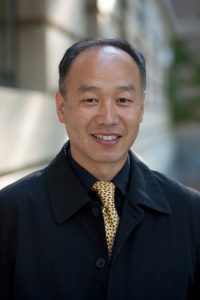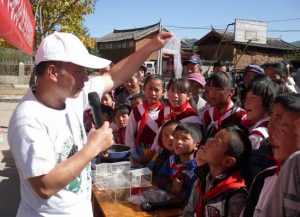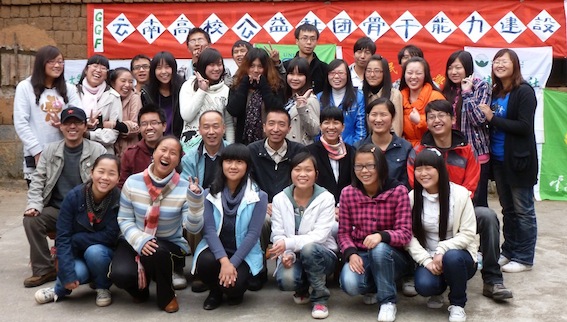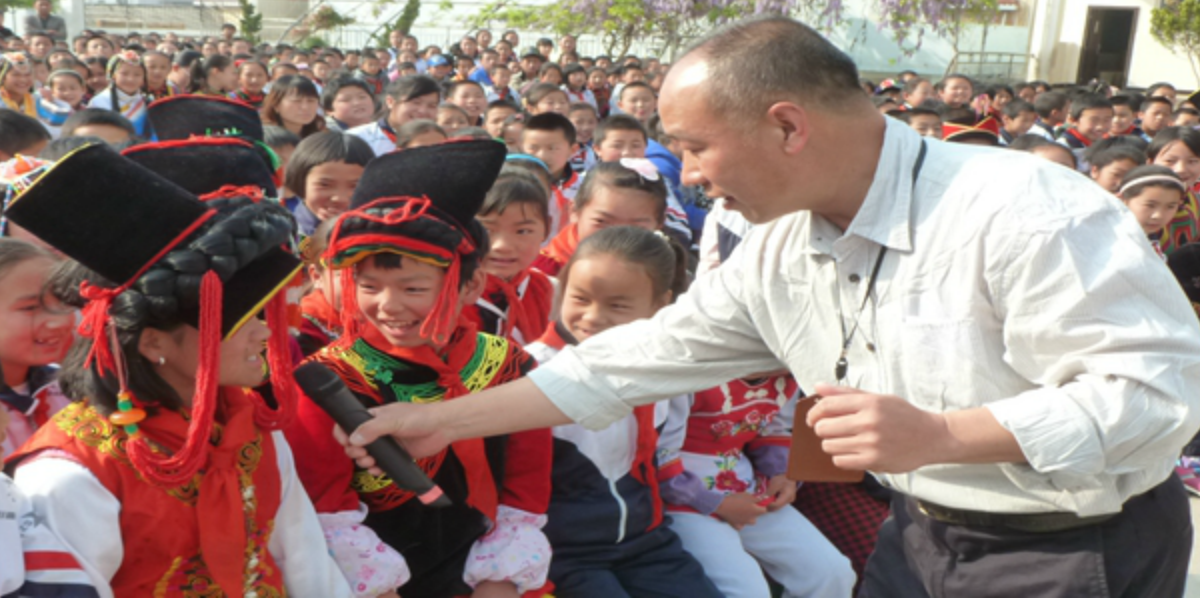Lijiang GEC Fosters Green Leaders of China’s Future
Written by: Melody Song
The idea of sustainability often brings certain concepts to mind. Clean energy. Net positivity. Eco-friendly food. While these may be the main focus in the U.S., Mr. Chen Yongsong, Director of the Green Education Center (GEC) in Lijiang, China, discusses a different side to promoting sustainable development.

Mr. Chen Yongsong, Director of the Green Education Center
“The biggest challenge is that people simply aren’t aware of the importance of environmental protection” said Mr. Yongsong, who founded the Lijiang GEC in 2008. “What the people need is education and more information to know how to behave sustainably. Our center is trying to lead the way by providing green education to young people who will grow up to be green leaders in the future.”
As a knowledge base for sustainable development, the center works on various projects – running programs such as “Leave No Trash Behind” and “Green Museum Education,” an educational live-in program they have provided free for students. They also work on restoration projects in the surrounding areas, planting trees and maintaining the biodiversity. But Mr. Yongsong says their biggest challenge is simply educating the general public.
“Here in China, people put emphasis on local culture only, [but] they need to realize that global culture and the environmental problems outside the community should not be neglected,” he said.
Mr. Yongsong often appeals to the public and to Chinese businesses to help volunteer their time or money towards sustainability, but the general response from citizens has typically been passive. As he points out, businesses may donate once to local organizations, but are typically uninterested in helping out without further incentives. Similarly, most university students are focused on job-seeking and less aware of the environmental issues outside of their communities news.

But as Mr. Yongsong points out, there have been steps in the right direction – on both a micro and macro level. In the immediate community of Lijiang, local citizens’ support and volunteers in the area have been key to the success of the “Green Museum Education” program.
On a larger scale, Chinese President Xi Jinping stressed in a speech to the 2016 G20 Summit that China has developed a “2030 Agenda for Sustainable Development” that it will adhere to even while experiencing rapid modernization and economic growth.
“We will unwaveringly pursue a strategy of sustainable development and stay committed to…China’s fundamental policy of conserving resources and protecting the environment,” President Xi Jinping told world leaders.
However, there still is a long way to go. While President Xi Jinping is trying to guide the country towards a more sustainable future, the logistics of implementing such a plan in a population of over 1.3 billion is overwhelming. In smaller areas like Lijiang, mid-tier businesses are reluctant to engage in green practices or to assist with green organizations, especially when the perceived return on investment is slim.
As Mr. Yongsong notes, “lots of Chinese people really believe that with enough money they can control pollution and tackle environmental problems easily, but you can see the situation worsening steadily. We need to see the whole community – all the citizens – understand and have an awareness of these public issues and to contribute.”

To learn more about Lijiang Green Education Center, please visit their blog: http://blog.sina.com.cn/ljgec







